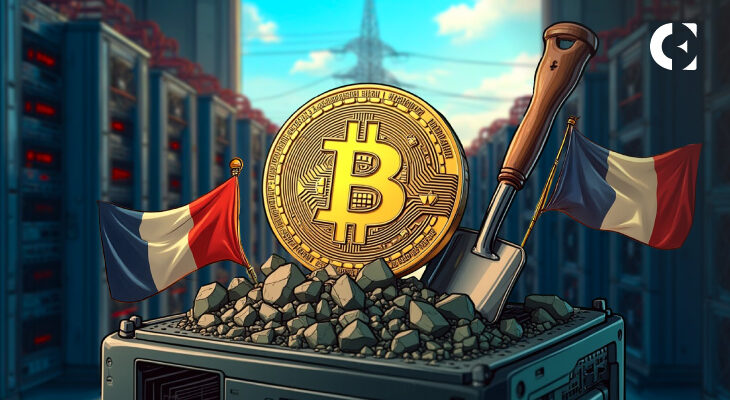If you thought French innovation was limited to baguettes, berets, and the Eiffel Tower, think again. Lawmakers in France have just proposed a bill that could make the country the first in Europe to officially mine Bitcoin using surplus electricity. Is this a stroke of genius, a desperate attempt to stay relevant in the crypto race, or just a clever way to keep the lights on in Paris? Let’s break it down—oui or non?
The Big Idea: Turning Surplus Into Satoshis
Every year, France’s energy producers generate more electricity than the country can use, especially during off-peak hours or when the wind and sun are feeling extra generous. Normally, this surplus is sold at a loss or, worse, wasted. Enter the new proposal: let’s use that extra juice to mine Bitcoin!
The bill suggests a five-year experiment where energy producers can use their excess electricity to power Bitcoin mining operations. The logic? If you can’t store it, you might as well turn it into digital gold.
Why Is France Doing This?
- Reduce Waste: Instead of letting surplus energy go to waste, convert it into something valuable.
- Boost Revenue: Mining Bitcoin could turn a loss (selling cheap surplus) into a profit.
- Tech Leadership: France wants to show it’s not just about fine wine and cheese—it can lead in digital innovation, too.
- Green Mining: By using renewable surplus, France could set a new standard for “clean” Bitcoin mining.
Oui: The Case For French Bitcoin Mining
- Economic Win: Turning wasted energy into Bitcoin could generate millions in new revenue for energy producers and the government.
- Environmental Bonus: Using surplus renewable energy means the mining is as green as it gets—no coal, no guilt.
- Crypto Cred: France could become a European leader in crypto innovation, attracting investment and talent.
- Grid Stability: Mining can help balance the grid by soaking up excess power during low-demand periods.
Non: The Case Against
- Volatility: Bitcoin prices swing more than a French can-can dancer. What if the market crashes?
- Regulatory Risks: The EU isn’t always crypto-friendly. Could Brussels rain on France’s parade?
- Public Perception: Not everyone loves Bitcoin. Some see mining as wasteful, no matter how green it is.
- Technical Hurdles: Setting up large-scale mining isn’t as easy as plugging in a toaster. It requires investment, expertise, and security.
How Much Bitcoin Could France Mine?
Let’s play with some numbers. Suppose France has 1 gigawatt (GW) of surplus electricity for 1,000 hours a year. That’s 1,000,000 megawatt-hours (MWh).
- Current Bitcoin network efficiency: ~30 J/TH (Joules per terahash)
- 1 MWh = 3.6 billion joules
- 1,000,000 MWh = 3.6 trillion joules
With modern miners, that could mean hundreds of Bitcoin mined per year—potentially worth tens of millions of dollars, depending on the price.
What Does This Mean for Crypto?
If France pulls this off, it could set a precedent for other countries with surplus energy. Imagine a world where every wind farm, solar array, or hydro dam mines Bitcoin when the grid doesn’t need the power. It’s a win-win: less waste, more value, and a greener crypto industry.
Final Verdict: Oui or Non?
Is this a good idea? In true French fashion, the answer might be “oui, mais…” (yes, but…). The plan is bold, innovative, and could make France a crypto pioneer. But it’s not without risks—regulatory, financial, and technical.
One thing’s for sure: if France starts mining Bitcoin with surplus electricity, the world will be watching. And who knows? Maybe the next time you visit Paris, you’ll see a Bitcoin miner humming away next to the Mona Lisa.
For more crypto news, fintech insights, and a dash of humor, follow Fintech Junction and join the conversation!

